In this article, we'll cover:
- How does commercial or industrial composting work?
- What are the most popular methods of commercial composting?
- What is windrow composting?
- What is aerated static pile composting?
- What is in-vessel composting?
- What is vermicomposting?
- Where is a composting facility near me?
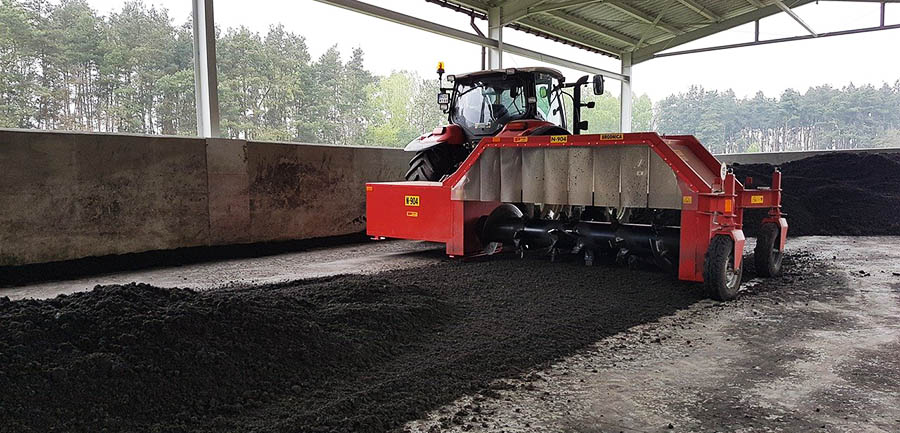
How Does Commercial/Industrial Composting Work?
The demand for industrial-scale composting has expanded considerably since becoming popular in the 1980s. Today, it is a growing destination for residential, commercial, and industrial organic waste streams.
Commercial or industrial composting uses the same biological processes as home composting food scraps and yard waste. However, it magnifies them on a much larger industrial scale. Using the latest technologies, companies can turn a broader range of organic materials into fertile soil than backyard composting. Items like compostable food packaging often require temperatures that can usually only be reached by these methods.
Regardless of the scale, there are numerous environmental benefits of composting. Industrial methods help slow the growth of landfills, cut down on greenhouse gases, and reduce the need for chemical fertilizers.
What are the most popular methods of commercial composting?
Industrial composting companies often collect compostable materials directly from consumers with trucks, similar to curbside trash pick up. Some companies allow consumers to drop off large amounts of organic matter like leaves, grass clippings, and kitchen scraps at their sites. Either way, once the organic matter reaches a composting facility, there are various ways that it can undergo the composting process.
The most popular methods of commercial composting include windrow composting, aerated static pile composting, and in-vessel composting. These methods can handle significant volumes of waste efficiently. Either method is chosen based the on volume of waste, space availability, and environmental regulations in different regions.
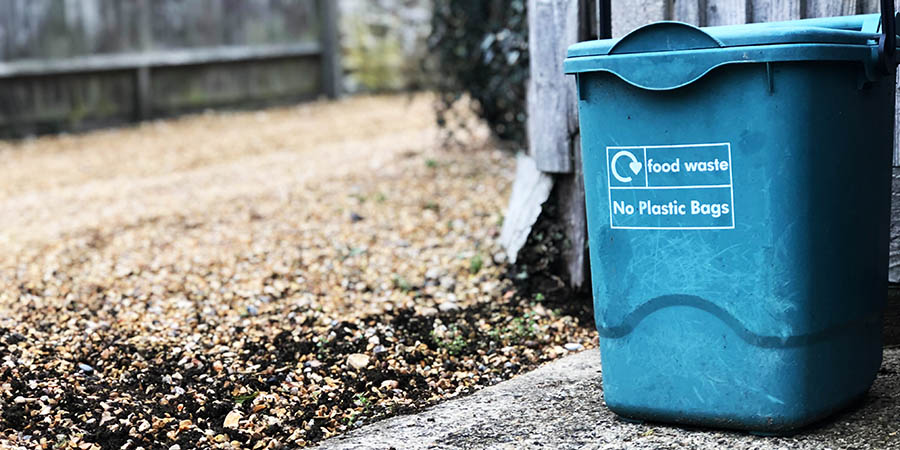
What is Windrow Composting?
According to BioCycle's 2023 survey of U.S. composting facilities, windrow composting is the most popular commercial composting method. It is especially favored in agriculture and municipal settings because of its simplicity, cost-effectiveness, and ability to process large volumes of organic material, such as agricultural waste and food scraps.
This composting method requires organic material to be collected and arranged into long rows known as “windrows.” Windrows are generally four to eight feet high and around 15 feet wide and various lengths. Though the size of compost piles can vary, these specifications help maintain the proper temperature for biodegradation while allowing air to reach the core.
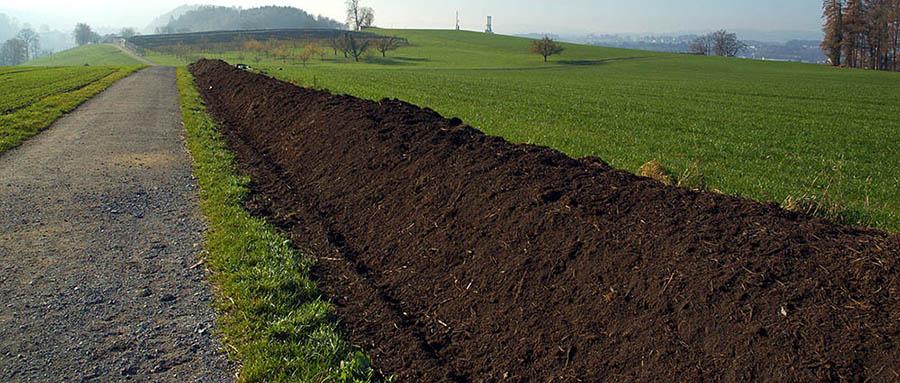
Windrow composting does come with a few drawbacks. First, it requires a lot of ground space to produce compost in large quantities. Moreover, commercial composting companies cannot just let the piles of matter sit untouched.
They must also be regularly mixed by machine to ensure that all material gets access to heat, moisture, and oxygen. While this composting method does produce fertile soil in bulk, it usually takes around four months to complete the process.
What is Aerated Static Pile Composting?
Static pile composting is a relatively efficient method for commercial composting companies. In as little as three months, an organization can produce compost at a large scale without high overhead costs.
Static pile composting works by mixing piles of organic matter with debris like wood chips or paper. Larger debris creates air pockets, allowing oxygen to reach every part of the pile. Piles are then occasionally turned or mixed with machinery like tractors or excavators.
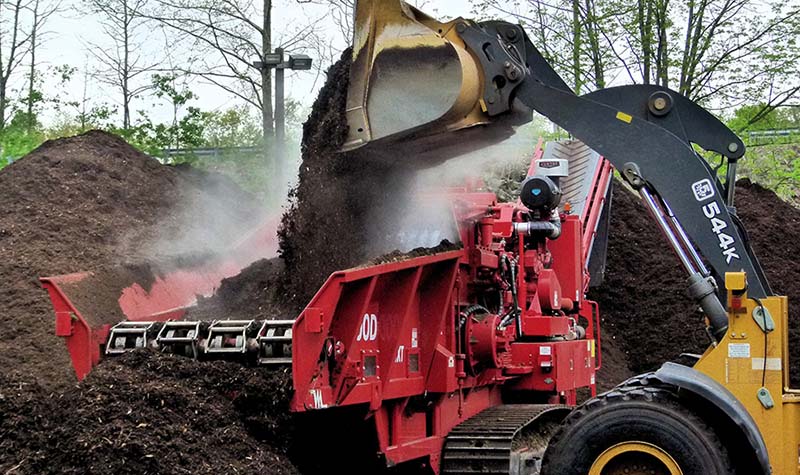
Composters can also opt to aerate these piles using air pipes to pump oxygen to different layers of the pile. This ensures that every part of the pile decomposes as it should by feeding micro-organisms the oxygen they need.
Unfortunately, the aerated static pile method does not work well with all types of organic matter. For example, animal byproducts and grease cannot decompose at the same rate as other materials. As a result, companies have to spend additional time sifting through their organic collections before sending them to the pile.
What is In-Vessel Composting (IVC)?
While every composting method has pros and cons, in-vessel composting is considered the most cost-effective way to compost commercially. In-vessel composting does not have the biological limitations of aerated static piles or require as much space as windrow composting.
Organic materials are first shredded and mixed with this method, then deposited into a commercial composting machine. The device controls temperatures, hydration, and aeration. Additionally, the machine can rotate or churn the composition to ensure that every part decomposes at the same rate.
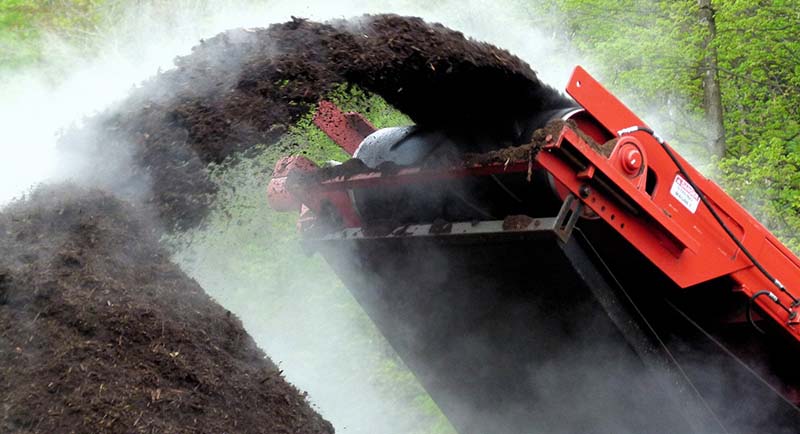
The hot compost is sanitized by high temperatures that kill off harmful bacteria and weed seeds with the temperature controlled and monitored. Once complete, the compost is left to mature in an enclosure to stabilize before screening if not already screened.
Naturally, the size of the machine will determine how much compost can be processed. That said, it can take less than a month to go from unused organic waste to fertile soil. While an industrial composting machine and IVC infrastructure requires a greater investment upfront, it can yield the best results for commercial composting companies.
What is Vermicomposting?
Though vermicomposting is more common for individuals and smaller organizations, the process can be scaled to meet commercial demands. Vermicomposting involves using compost bins filled with organic matter like food waste or yard trimmings. Worms are then added to the composition. Over time, these worms break down food and other materials into soil rich in plant-healthy microbes and nutrients.
Vermicomposting is a relatively fast option. From start to finish, the process can take as little as two months to produce high-quality soil. However, it’s not always the most cost-efficient commercial composting method, nor is it easy to manage at scale.
Where can I find a composting facility near me?
In many areas, local or state agencies can help individuals or businesses process compostables. If your local municipality does not offer a program for collecting compost, you can likely find a private company that can. For more help finding commercial composting facilities near you, be sure to check out the Find a Composter tool!



